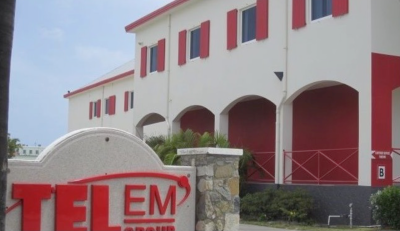 PHILIPSBURG:---
PHILIPSBURG:---
A national telecom in crisis: operational missteps, leadership absent, employees protected above progress, and government apathy—all dragging TELEM, and Sint Maarten’s digital future, deeper into the abyss.
The recent approval of Starlink's five-year license in Sint Maarten isn’t simply another shift in the telecom landscape—it’s a glaring red flag signaling the terminal decline of TELEM. This collapse isn’t market-driven; it’s the inescapable result of deep-seated mismanagement, poor leadership, and a web of self-preserving interests from every corner tied to the fate of our national provider.
A Company Crippled by Compromise
TELEM’s current state is a damning reflection of years spent avoiding real solutions. The company, still without a 5G network, stumbles behind competitors, delivering some of the worst internet service on the island. Even with its mobile network outsourced to Huawei, promised modern standards remain painfully out of reach. Customers are left enduring staff and support that too often fail to deliver even the basics.
Despite all these failings, it must be noted that TELEM employees were always paid—there was never a missed paycheck during the company’s ongoing decline. This continual payment wasn't a sign of corporate health, but rather a byproduct of the union’s resistance to any meaningful sacrifice. When asked to accept a temporary three-year reduction in benefits to help stabilize TELEM’s finances, the union flatly refused, favoring personal comfort over the company’s survival.
Meanwhile, TELEM workers consistently shunned their core responsibilities, opting instead to outsource work they were fully capable of performing themselves. This costly culture of avoidance further undermined efficiency and drove up operational expenses—highlighting a glaring lack of accountability within the organization.
Absent Leadership and Blocked Solutions
Leadership at TELEM has been both physically absent and actively obstructive in recovery efforts. The Chair of the Board, residing in Europe, is far removed from the daily realities faced by staff and customers, leaving the Supervisory Board of Directors unable to function effectively. This leadership vacuum meant that when bold actions were needed, what TELEM got instead was delay and deadlock.
Most damaging of all, the Board repeatedly sabotaged efforts to pull the company back from the brink. At a moment when liquidity was desperately needed, the Board refused to authorize the sale of the SMITCOMS Building to the Governor for 5 million CXG—a deal that could have eased the mounting financial pressure. Worse still, Board members routinely blocked key management decisions that might have generated revenue or improved operations, ensuring the company remained trapped in a steady downward spiral.
Government Indifference and Missed Lifelines
Perhaps most damning is the government’s ongoing detachment. As shareholder representative, it had the authority and responsibility to act decisively, yet failed to deliver on either count. Former Prime Minister Leona Romeo’s refusal to provide the 20 million CXG cash injection recommended by the World Bank left TELEM cash-starved and unable to invest in much-needed modernization. Instead of support, TELEM faced indifference—left to fend for itself while expected to compete with better-funded and better-managed competitors.
Even as TELEM struggled with a web of regulatory burdens and a failing governance structure, the government rolled out the welcome mat for Starlink and other foreign competitors. The results of this neglectful approach: years of underinvestment, missed lifelines, and squandered opportunities for reform.
Lessons Not Learned, Warnings Unheeded
In the aftermath of Hurricane Irma, TELEM’s battered infrastructure should have sounded an alarm about the need for resilient, locally owned networks. The reality, however, was more inertia and more self-preservation. No TELEM employees missed a paycheck, but that security proved cold comfort in a workplace increasingly defined by stagnation and missed opportunities—where management’s hands were tied, the Board blocked any real change, and government shrugged away its obligations.
The Cycle of Decline Continues
Every time a potentially transformative decision was vetoed by the Board, every time the union put benefits above viability, and every time government leaders refused to intervene, TELEM’s future darkened. A thousand such choices paved the company’s downward path: the Board’s refusal to sell company assets or support management, the workforce’s resistance to taking on key tasks, the government’s failure to provide essential funding, and the union’s unwillingness to make even temporary sacrifices. Each player chooses protection or power over partnership and progress.
Sint Maarten Deserves Accountability and Action
It is long past time for responsibility, vision, and tough choices. TELEM should be a source of national pride and digital progress—but it cannot be while pet interests, weak leadership, and short-term self-preservation outweigh the public good at every turn. Without real accountability, fundamental changes in governance, and a commitment to prioritizing performance over perks, TELEM’s future will mirror its past: defined by stagnation, missed opportunities, and dependence on outside actors.
The answer is no more delay or halfway reform—the solution is honest reckoning and urgent action. Sint Maarten’s digital sovereignty, economic growth, and public interest demand nothing less.










